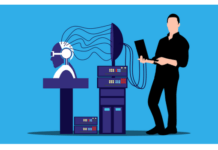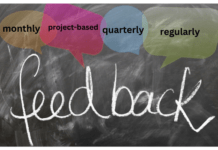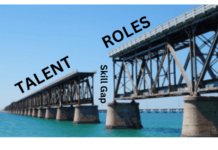That human attention span has decreased over the past few decades is quite clear. While we all know that there are way too many distractions today than there were a couple of decades ago, there is scientific data to corroborate that too. As per research, in the 2000 to 2015 period, human attention span reduced by an alarming 25 per cent. That means, 15 years is all it took to shrink our attention span, which was about 12 seconds in year 2000 and came down to 8.25 seconds in 2015. Many would say the remote working culture imposed by the pandemic is to blame. Then of course there is increased use of devices and gadgets today that is very distracting, even for youngsters yet to step into the workforce.
Who or what is the culprit?
Not everything can be blamed on the pandemic. Studies before the pandemic have also shown that the average worker is at his/her productive best only for about three hours in a day. Most of their time went into browsing news on the internet or going through social-media accounts or chatting with colleagues.
So what or who is the culprit here?
Before we get to this, it is pertinent to mention that there is a different between being engaged and being challenged.
Engagement vs challenge: Not all the work people do during the day is challenging, yet they may be engaged in doing that work. For instance, an HR person who is sorting resumes may be very engaged in the work, but the work itself is not very challenging. Studies reveal that that there are only certain times of the working day when people are both engaged and challenged. That is the time when they require to pay focused attention on their work. For instance, when the same HR person is interviewing the shortlisted candidates all of whom are extremely qualified and suitable for the job, but only one can be selected. This can be quite challenging and can keep the HR person engaged for a couple of hours. However, if a junior HR person is selecting resumes of only candidates who belong to a particular state or location, this activity may see him engaged but hardly poses any challenge. This HR person would be simply performing the activity by rote.
Multitasking: Research has revealed that multitasking does lead to a rise in stress levels and blood pressure. This makes it difficult to stay focussed and productive. And today, most people are multitasking, especially women professionals who are taking care of their families / children, keeping house and also doing official work.
Lack of focus: Recently, when asked how many hours of actual productive and focused work tech workers managed to put in, a significant number of the respondents said they could focus on work for hardly four hours! The question was posed by a techie, employed with a digital product and engineering firm on Blind, the messaging platform. He himself admits in the post that he feels the urge to take long breaks of about two hours before feeling motivated enough to focus on work. He also truthfully states that although he could resume working in two or three hours, he’d rather extend the break since he is anyway working from home. Considering that the median salary paid to software engineers at the firm he works for — as per Glassdoor — is about $190,000 a year, it appears even highly-paid techies are barely putting in four hours of focused work daily.
A significant 45 per cent of the over 8,400 respondents admitted to being productive for hardly four hours or less on a normal working day. Maximum number of respondents admitted to working for only about four hours a day. Eight hours or more of work was being put in only by approximately 25 per cent of the respondents.
Mental stress: So how is the work hour divided for most? Based on the responses received, after four hours of working with concentration and focus, some spend the remaining working hours attending meetings, doing documentation work and resting. In fact, some workers are of the opinion that it is not possible for software engineers to put in more than four to five hours of work a day, as it can get mentally exhausting.
Distractions: Today, people have too many distractions in the form of mobile phones, i-pads, smart watches and of course the good old television. Gloria Mark, author of ‘Attention Span: A Groundbreaking Way to Restore Balance, Happiness and Productivity, reveals in her book that about two decades ago, people could focus attention for about 2.5 minutes on average, when they were working online or performing tasks involving use of screens, before they switched screens. By 2012, that time span had decreased to 75 seconds. A decade later, it further shrunk to 47 seconds!
Many employees have claimed that too many work meetings keep them from working eight hours. The most popular response was from an employee who said that people claim to work for over eight hours and then attend meetings that last five hours, where they stay mute for most of the time, opting to unmute probably just once. With so many meetings to be attended and e-mails to be replied to, some feel it is a miracle that work gets done at all regardless of whether one is working from a physical office or from home. Complete focus can only happen for a short time provided there is no disruption. And this is rare in a physical office where there are too many disruptions and also administrative work to be done.
Remote work: There were also some who gave credit to the work-from-home mode that allowed them to be extremely productive in lesser time, which means they could achieve a lot more in fewer hours and could afford to spend less time working.
Not everyone agrees though. Many feel that techies are taking advantage of the remote work model and spending less time doing actual work; that work-from-home is giving rise to lazy workers with an increased tendency to procrastinate.
Value our content... contribute towards our growth. Even a small contribution a month would be of great help for us.
Since eight years, we have been serving the industry through daily news and stories. Our content is free for all and we plan to keep it that way.
Support HRKatha. Pay Here (All it takes is a minute)




































